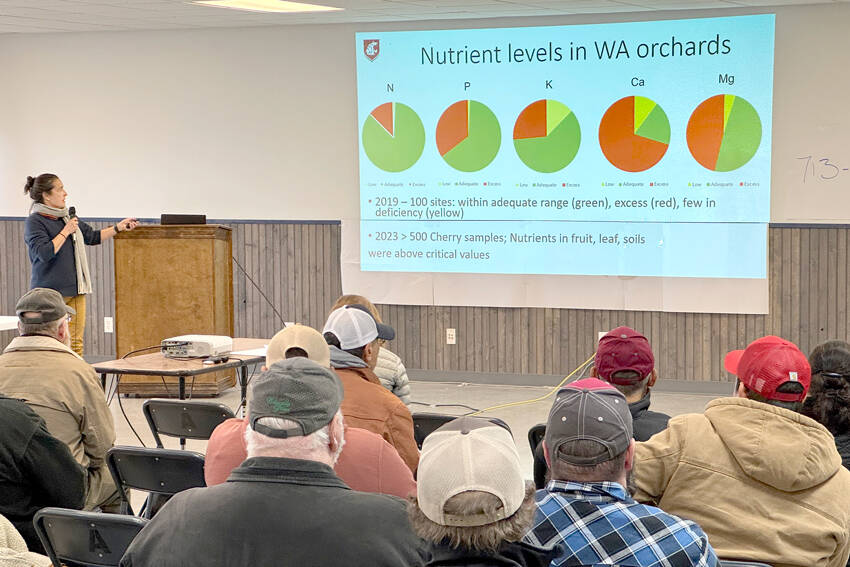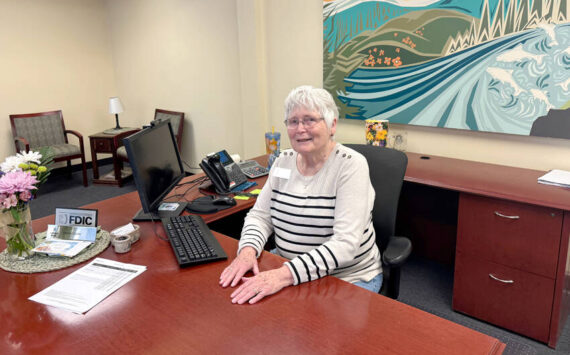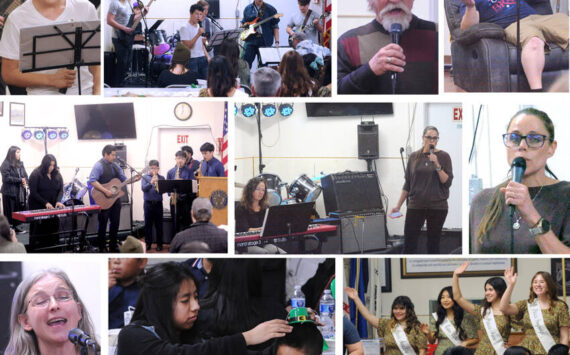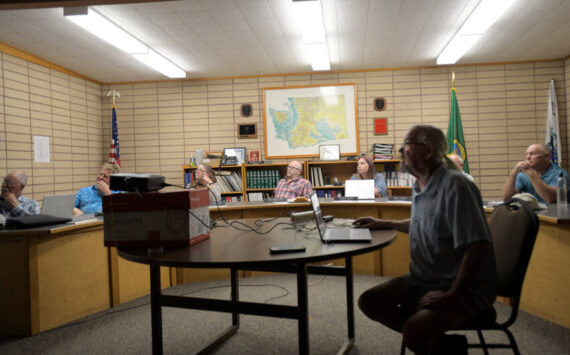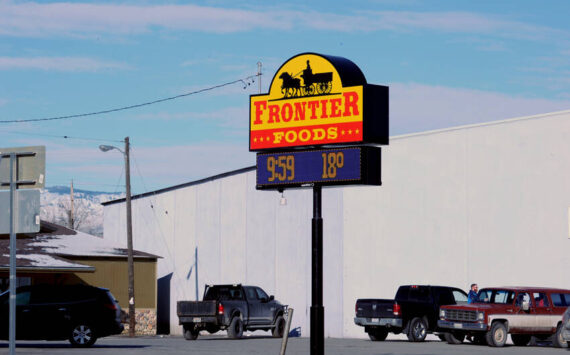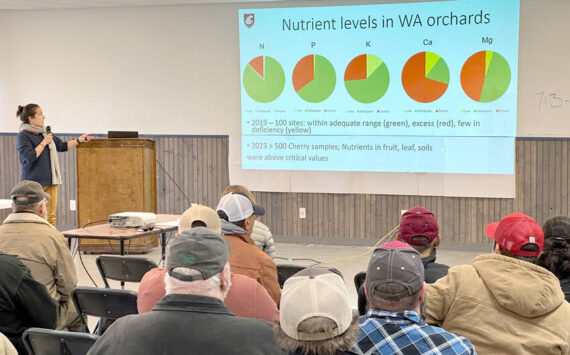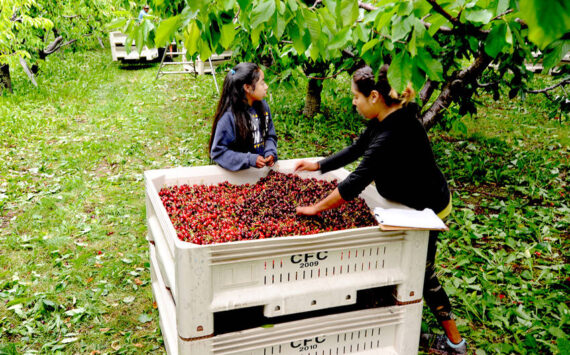OKANOGAN – The 2025 Okanogan Horticultural Society Meeting took place at the Agriplex at the Okanogan County Fairgrounds last Thursday, Feb. 6 and was well attended.
The meeting, which was co-sponsored by the WSU Extension and the Okanogan County Horticultural Association, had a full lineup of information presented by experts. Topics discussed included the codling moth, an apple maggot update, fire blight, pear psylla, avoiding post-harvest rots and disorders, apple and cherry fertility and a panel on transitioning to organic practices.
“The Okanogan Horticultural Association Annual Meeting went well this year. With over 130 participants at this year’s meeting, we had a strong turnout. The Association worked hard to bring out a stellar panel this year,” said Tianna DuPont, a Tree Fruit Specialist with the WSU Tree Fruit Research & Extension Center.
“These meetings are critical to get the latest research-based information to growers. They are also an opportunity for growers to identify market trends and legislation that affects them,” she said.
Growers, consultants, orchard managers and industry professionals all attend.
This year a topic of particular interest was a grower panel looking at return on investment and decision-making for new plantings, according to DuPont.
“A great thing this year was the amount of discussion among participants and the speakers. We were able to delve deep into a few topics that will help orchardists apply what they learned for success this year,” said DuPont.
In the afternoon session, Bernardita Sallato, with WSU Extension, spoke on apple and cherry fertility, which dealt mostly with soil nutrition levels. The presentation was subtitled, “Getting the most bang for your buck.” She emphasized the value of soil testing to learn what elements were present in the soil and which were lacking. She also spoke of making sure not to add more elements than were necessary but to use the optimum amounts to get the best results.
“Because when we continue adding more than the tree can use we don’t see benefits, we’re just wasting more money, right?” said Sallato, adding that this goes against the goals of the tree producer who wants to grow a quality crop as inexpensively as possible to maximize profits.
“I would say now with the state of the economy in the apple and cherry industry we actually really want to maintain the soil as close as we can to these levels. Let’s don’t waste money if we don’t need to,” she said.
She went through several slides of charts, graphs and formulas in her presentation showing the various elements necessary to grow healthy trees and the types of soils in this area and other areas in the state, based on years of testing. These necessary elements include nitrogen, phosphorus, potassium, calcium magnesium and smaller amounts of others.
After her presentation, Sallato took questions from those in attendance.
The panel on transitioning to organic growing followed, then there was a policy update from Jeff Lutes with the Farm Bureau. The meeting closed at 3 p.m. and then there was a chance to earn three pesticide credits from the Washington State Department of Agriculture.
The well-attended lunch was sponsored by Chelan Fresh Marketing.
